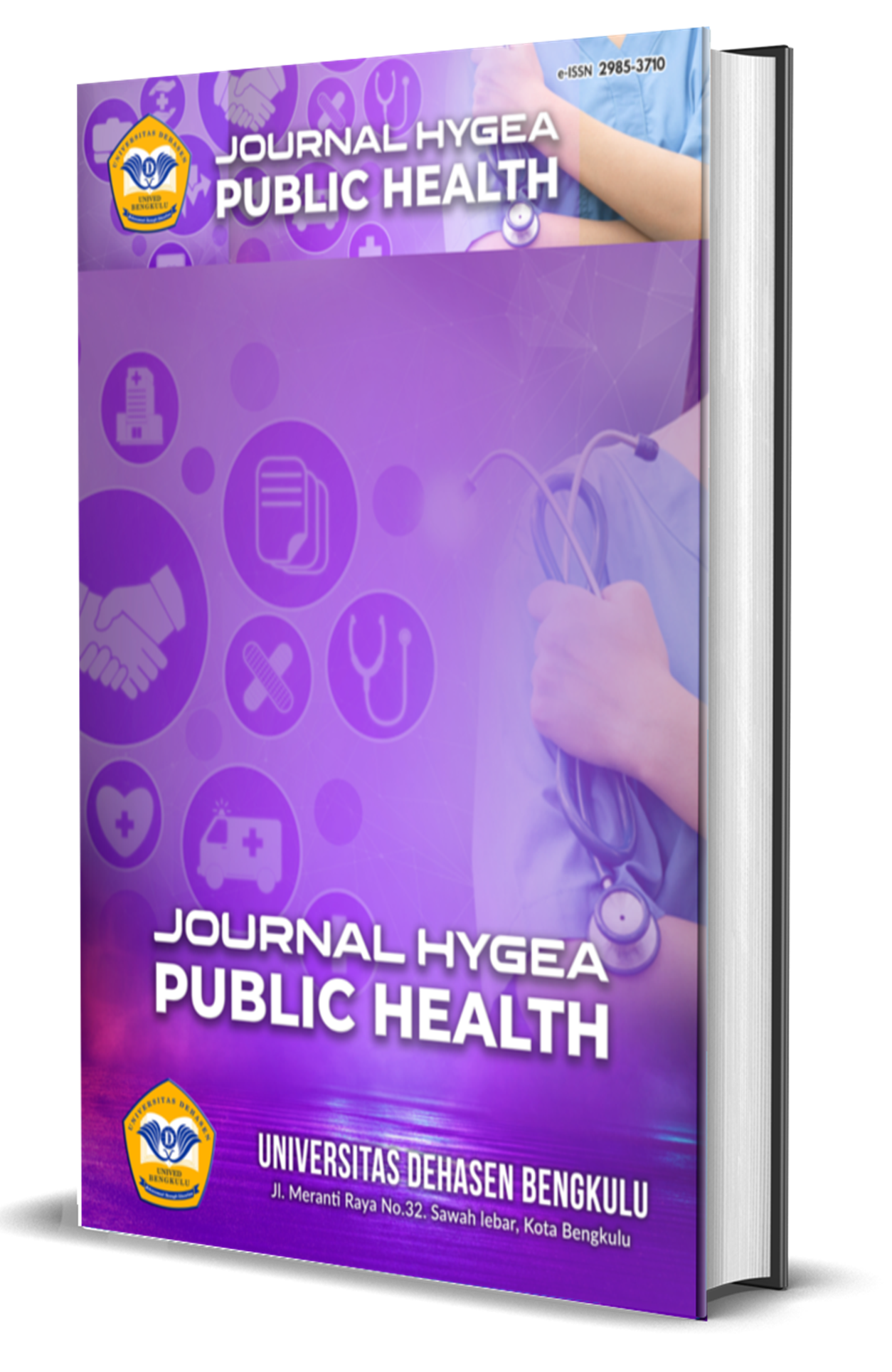The Relationship Between Mothers' Knowledge And Economic Status With The Incidence Of Diarrhoea In Toddlers At The Muara Rupit Family Clinic, North Musi Rawas Regency, In 2024
Abstract
Diarrheal disease is an endemic condition that has the potential to cause outbreaks and continues to contribute to mortality rates in Indonesia, especially among toddlers. The results of the Basic Health Research show that the prevalence of diarrhea across all age groups is 8%, while it is 12.3% among toddlers and 10.6% among infants. Several factors are associated with the incidence of diarrhea, such as knowledge, age, education, occupation, environment, nutrition, and socio-economic status. The objective of this research is to determine the correlation between maternal knowledge and economic status with the incidence of diarrhea in toddlers. The method used is a descriptive correlational method with a cross-sectional approach. Data were collected by distributing questionnaires to 38 respondents who had toddlers and sought treatment at Muara Rupit Family Clinic, using the total sampling technique.The univariate analysis results showed that most respondents (57.9%) had toddlers who experienced diarrhea, nearly half of the respondents (44.7%) had sufficient knowledge, and almost half of the respondents (42.1%) were of low economic status. The bivariate analysis results indicated a significant correlation between economic status and the incidence of diarrhea in toddlers (p-value = 0.014 < 0.05), and a significant correlation between maternal education and the incidence of diarrhea in toddlers (p-value = 0.015 < 0.05). The researchers recommend that healthcare workers increase counseling about diarrhea as part of efforts to reduce its incidence and improve maternal knowledge about the disease.
Downloads
Copyright (c) 2025 Melingga Zulfiana, Kintan Anisa, Lezi Yovita Sari

This work is licensed under a Creative Commons Attribution-ShareAlike 4.0 International License.







